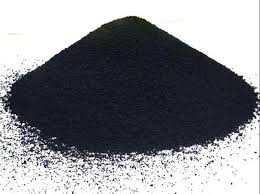Is carbon charcoal conductive?? All You Need to Know
Carbon is a versatile element that is used in various applications, from building materials to electronic components. But when it comes to carbon charcoal, the question arises: is it conductive? In this article, we will explore the conductivity of carbon charcoal and its various applications.
What is Carbon Charcoal?
Carbon charcoal is a type of charcoal made from organic materials such as wood, coconut shells, and bamboo. The process of making carbon charcoal involves heating these materials in a low-oxygen environment, resulting in a highly porous material with a large surface area.
Is Carbon Charcoal Conductive?
Yes, carbon charcoal is conductive to some extent. Its conductivity depends on various factors such as the purity of the charcoal, the temperature, and the surface area. The high surface area of carbon charcoal makes it an excellent conductor of electricity, and it is used in many applications that require electrical conductivity.
Applications of Carbon Charcoal
Water Purification
One of the primary applications of carbon charcoal is in water purification. The high surface area of charcoal makes it an effective adsorbent material, which can remove impurities from water. Activated carbon charcoal is commonly used in water filters, where it can remove chlorine, sediment, and other contaminants from drinking water.
Gas Adsorption
Carbon charcoal is also used in gas adsorption applications. Its high surface area allows it to trap gases and vapors, making it useful in air and water filtration systems. Activated carbon charcoal is commonly used in gas masks and respirators, where it can filter out dangerous chemicals and toxins.
Electronics
Carbon charcoal is also used in various electronic applications such as batteries and capacitors. Its conductivity makes it an excellent material for these applications, and its high surface area allows it to store a large amount of charge. Carbon charcoal is also used in electromagnetic shielding, where it can provide protection against electromagnetic interference.
Art and Craft
Carbon charcoal is commonly used in art and craft applications such as drawing and painting. Charcoal pencils and sticks are made from carbon charcoal, which is a versatile and easy-to-use material.
Conclusion
Carbon charcoal is a versatile material that has many applications, from water purification to electronics. Its high surface area and conductivity make it an excellent material for many applications. So, the next time someone asks "is carbon charcoal conductive?", you can confidently say yes, it is!

